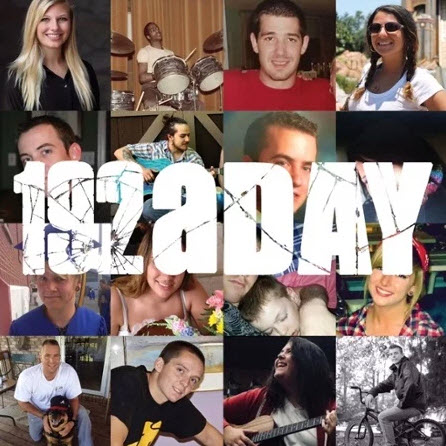
This week, Addiction Policy Forum launched the #192aDay awareness campaign to honor those lost to drug overdose and other complications of substance use. The Centers for Disease Control (CDC)’s 2017 data revealed that more than 70,000 people died from drug overdoses — 192 a day — making it the leading cause of injury-related death in the United States, more than deaths from gun violence or car accidents. The campaign features 192 letters from the family members who have lost a loved one to addiction.
Excerpts from the campaign:

Cassidy
“She was our sunshine, our beautiful and bright angel. But to shine some light on an illness that is taking the lives of far too many, if we allow shame, guilt or embarrassment to cause this illness to become a dark family secret, hiding in the shadows, everyone loses.”-Cassidy’s mom, Charla

Anthony
“The disease of addiction is a merciless, non-discriminatory devil. The loss of my big brother has created a sore on my heart that will never heal. We must fight to end this epidemic.”-Anthony’s brother, Gino

Justice
“Heroin took my daughter. She was 21 years old. She had barely lived. Justice never owned her own car; she never traveled the world; she never married or had children; she won’t see her brothers grow to be good men, or meet her future nieces or nephews. My daughter will never dance again. She will never see an amazing sunset, or feel the warmth of the sun on her beautiful face. I will never hear my daughter’s beautiful voice again or hear her call me mom. Heroin took that all away. We all failed my daughter. All those times she reached out for help and was denied, we failed her. I have to live with this for the rest of my life. Justice was my only daughter. She was my girl, she was my dream, she was my everything.” -Justice’s mom, Jennifer

Emmett
“Emmett was the average American teen; he loved video games and BMX biking. He was a caring, funny, smart young man with the potential for greatness. He was the adored older brother to Zachary and Alice . He had a smile and charm that could light up a room – but heroin stole that from him.”-Emmett’s mom, Aimee
“It’s far past time we recognize addiction for the disease that it is and move beyond the stigma that enshrouds substance use disorders,” said Jessica Hulsey Nickel, founder of the Addiction Policy Forum. “192 a Day helps shine a bright light on the beautiful lives lost to addiction and gives voice to the families that have been affected. We encourage those who have lost someone to share their stories through the campaign so we can show local, state and national leaders the very real impact addiction has on our communities.”
Please read the stories and get involved at 192aDay.org and watch @AddictionPolicy‘s PSA #192aDay featuring those lost to #addiction at https://bit.ly/2RlhOct .
Call The Council
If you, a loved one, or friend have a problem with drugs or any substance use disorder, call The Council on Recovery at 713-941-4200 or contact us online. We are Houston’s leading non-profit provider of prevention, education, treatment, and recovery services. We can help!
